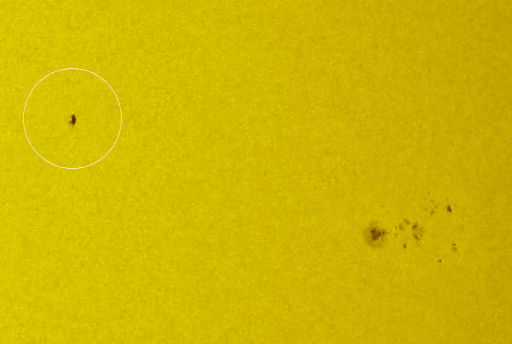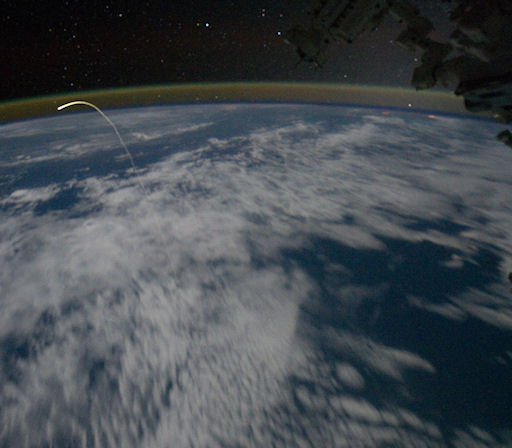McGovern bailed because he likely saw the writing on the wall. He knew he would be next to go should he take the mantle of the Kennedy's and at that point it was a play on full spectrum dominance of American politics.
In August 1967, activist Allard K. Lowenstein founded the Dump Johnson movement, and soon they were seeking a Democratic Party figure to make a primaries campaign challenge against Johnson in the 1968 presidential election.[107] Their first choice was Senator Robert Kennedy, who declined, as did another, and by late September 1967 they approached McGovern.[35][107] After much deliberation McGovern declined, largely because he feared such a run would significantly damage his own chances for reelection to his Senate seat in 1968.[8][108] A month later the anti-Johnson forces were able to convince Senator Eugene McCarthy to run,[107] who was one of the few "dove" senators not up for reelection that year.[108]
The 1968 Democratic primaries unfolded with McCarthy staging a strong showing and Robert Kennedy entering, followed by Johnson withdrawing and Vice President Humphrey running instead. While McGovern favored Kennedy privately, McCarthy and Humphrey were from a neighboring state and publicly McGovern remained neutral throughout.[109] McGovern hosted all three as they campaigned for the June 4 South Dakota Democratic primary, which resulted in a strong win by Kennedy to go along with his win in the crucial California primary that night.[109] McGovern spoke with Kennedy by phone minutes before Kennedy was assassinated in Los Angeles.[109] The death of Bobby Kennedy left McGovern the most emotionally distraught he had ever been to this point in his life.[109]
Within days, some of Kennedy's aides were urging McGovern to run in his place; their antipathy towards McCarthy and ideological opposition to Humphrey made them unwilling to support either candidate.[110] McGovern delayed making a decision, making sure that Ted Kennedy did not want to enter, and with his staff still concerned about the senator's own reelection prospects.[110] Indeed McGovern's voting had changed during 1968, with his ADA rating falling to 43 as he sought more middle-of-the-road stances.[74] In late July, McGovern's decision became more complicated when his daughter Teresa was arrested in Rapid City, South Dakota on marijuana possession charges.[111] She had led a troubled life since her teenage years, developing problems with alcohol and depression and suffering the consequences of a relationship with an unstable neighborhood boy.[112] Based on a recently enacted strict state drugs law, Terry now faced a minimum five-year prison sentence if found guilty.[113] McGovern was also convinced that the socially conservative voters of South Dakota would reject him due to his daughter's arrest.[113] Charges against her were subsequently dropped due to a technically invalid search warrant.[114]
McGovern formally announced his candidacy on August 10, 1968 in Washington, two weeks in advance of the 1968 Democratic National Convention, committing himself to "the goals for which Robert Kennedy gave his life."[115] Asked why he was a better choice than McCarthy, he said, "Well – Gene really doesn't want to be President, and I do."[116] At the convention in Chicago, Humphrey was the near-certain choice while McGovern became the initial rallying point for around 300 leaderless Kennedy delegates.[116] The chaotic circumstances of the convention found McGovern denouncing as "police brutality" the Chicago police tactics against demonstrators.[117] It was very difficult for McGovern to gain in delegate strength given the internal politics of the party, and black protest candidate Channing E. Phillips drew off some of his support.[117] In the actual roll call, McGovern came in third with 146½ delegates, far behind Humphrey's 1760¼ and McCarthy's 601.[118]
McGovern endorsed Humphrey at the convention, to the dismay of some anti-war figures who considered it a betrayal.[117] Humphrey went on to lose the general election to Richard Nixon. McGovern returned to his Senate reelection race, facing Republican former Governor Archie M. Gubbrud. While South Dakota voters sympathized with McGovern over his daughter's arrest,[119] he initially suffered a substantial drop in popularity over the events in Chicago.[120] However, McGovern conducted an energetic campaign that focused on his service to the state, while Gubbrud ran a lackluster effort.[120] In November, McGovern won 57 percent of the vote in what he would consider the easiest and most decisive victory of his career.[119]
He didn't "puss out", he, knew he would be able to go nowhere and he would have done no good dead. McGovern bailing and throwing his support behind Humphrey, was, I like to think, a meaty bone to those who would come 20, 30, 40 years in the future. As the lies have come basically full circle and the "nutball" conspiracy theories of old are now overtaking the running narrative over the years as the about-to-become-conventional-wisdom. I think I and others my age happen to live in a generation which straddles that which what
was America (what we believed it to be as naive kids with pro-labor Democratic parents and grandparents) and that which that we have come to know, post Iranian hostage crisis, hatred for Reagan by people who BELIEVED in the power of labor, resurgence of right wing militia movements in the 90s, Internet, Y2K, bush theft and of course 9/11 and on into where we are now -- wars we marched against and proved we had absolutely no power to affect anything in the intellectual miasma of the day.
That said, "they" would have bit off more than they could chew as far as their assassinations of progressive true Americans if they would have assassinated McGovern in turn. All their "lone nut" theories as far as the close cluster of assassinations of one family during the Vietnam era would have completely made, their "crazed but exactingly professional terrorist" look like an infinite ton of bullshit concerning 9/11, which would have never worked -- had they whacked McGovern. They had to slow down and begin methodical and complex psychological operations with not just the people, but now the politicians -- ala Bill Hicks "JFK moment".
Who knows? Maybe some faction of elites despised the fact that only JFK could have simultaneously convinced America to go to the Moon and also, somewhat secretly, oppose the Vietnam war and get us out of it and change the course of the country forever.
Ah well. . .
There is no me. There is no you. There is all. There is no you. There is no me. And that is all. A profound acceptance of an enormous pageantry. A haunting certainty that the unifying principle of this universe is love. -- Propagandhi





